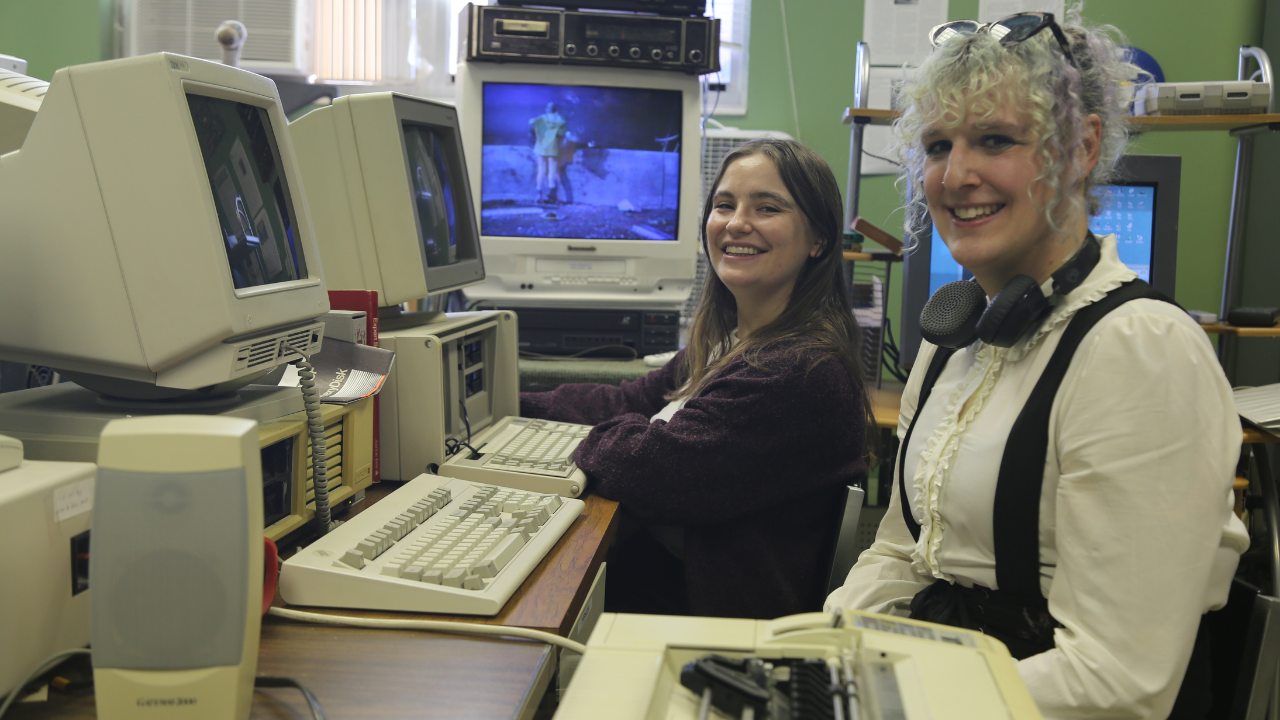MILWAUKEE — A specialized lab at the University of Wisconsin-Milwaukee is giving students the chance to experience computing history firsthand, from late 1970s machines to early 2000s technology.
The Retrolab, housed in UWM's History department, serves as a space where people can explore and interact with vintage computing technologies that shaped the digital age.
"It used to be that (technology) historians were able to assume that people would know what an Apple 2 or Apple Macintosh or IBC PC was and that they could write about the differences between those and how the computer technologies evolved since the first personal computers in the 70s. And that is just not the case anymore with today's undergraduate students," Professor Thomas Haigh, a history professor and chair of the history department, said.
The goal is to give students interactive experiences with old computers. They may seem like basic tasks, but actions like inserting floppy discs, installing software, or simply turning on a computer give students a more intimate understanding of old computers.
Watch the video to see what it looks like inside the Retrolab...
The lab addresses a unique challenge in studying technological history. Unlike buildings or roads that can last decades, computer technology develops at breakneck speed, making older systems quickly obsolete and inaccessible. Think about how many phones or computers you have had in the past 10 years.
"Computer technology is pretty much the one area of life where things have been changing rapidly. It's extremely easy to go through your day without coming across a computer that uses floppy disks or uses a CRT monitor, Professor Haigh, said.
If you didn't grow up with floppy discs, you may not know how to use one at all. The Retrolab gives younger students a chance to travel to the past and see just how fast technology has changed.
The experiential learning approach often triggers emotional responses from visitors who encounter technology from their past.
"Often when people come in they're like, oh I remember this thing, you know, quite an early childhood memory, such and such a game I played and so on, and then if I'm able to show them that, it's often a quite emotional kind of reaction," Tom said. "In recovering the old technology, we're also recovering parts of people's lives."
For PhD student Clarissa Fontaine, who studies the history of gaming communities and the early internet, the lab provides crucial access to research materials.
"In history, we deal with primary source materials so much, and so software is a primary source, and just being able to see it like this is really important because otherwise there might not be any way for me to actually see how the software looks or how it operates," Fontaine said.
The lab continues expanding its collection to help students understand technological development patterns. The rapid pace of innovation means today's cutting-edge devices will eventually join the vintage collection.
"One thing that's just interested me a lot is sort of the emulation of nostalgic technological aesthetics, you know the aesthetics of old technology and just wanting to interrogate that and actually spend time with these technologies that have those aesthetics to understand them more beyond just the nostalgia that's there," PhD student Emma Culver, who is in the media, cinema, and digital studies program, said.
The computers all come from donations. Some are from Professor Haigh's parents' attic, a large number are given to the lab by the university's IT department, a few came from other professors, and the rest were donated by community members.
"So in the Retrolab, I get the experience to actually put my hands on these technologies to see how they work in context of the actual device and sort of compare and contrast that to our contemporary digital experience," Culver said.
Going forward, Haigh wants to continue adding more retro computers to the lab and expand the experiences students can have. You can find out more information about the Retrolab by going to Professor Haigh's website.
This story was reported on-air by James Groh and has been converted to this platform with the assistance of AI. Our editorial team verifies all reporting on all platforms for fairness and accuracy.
It’s about time to watch on your time. Stream local news and weather 24/7 by searching for “TMJ4” on your device.
Available for download on Roku, Apple TV, Amazon Fire TV, and more.




